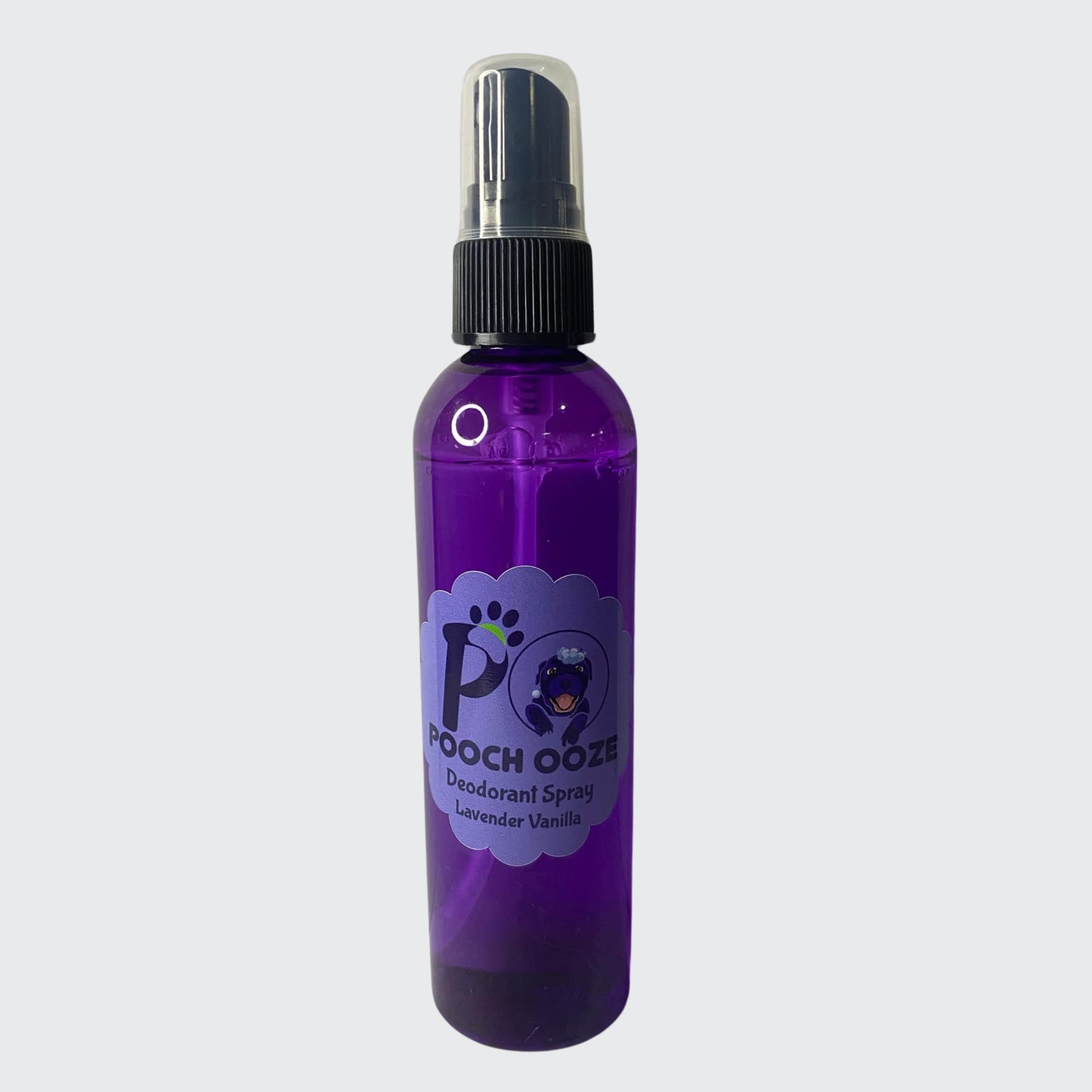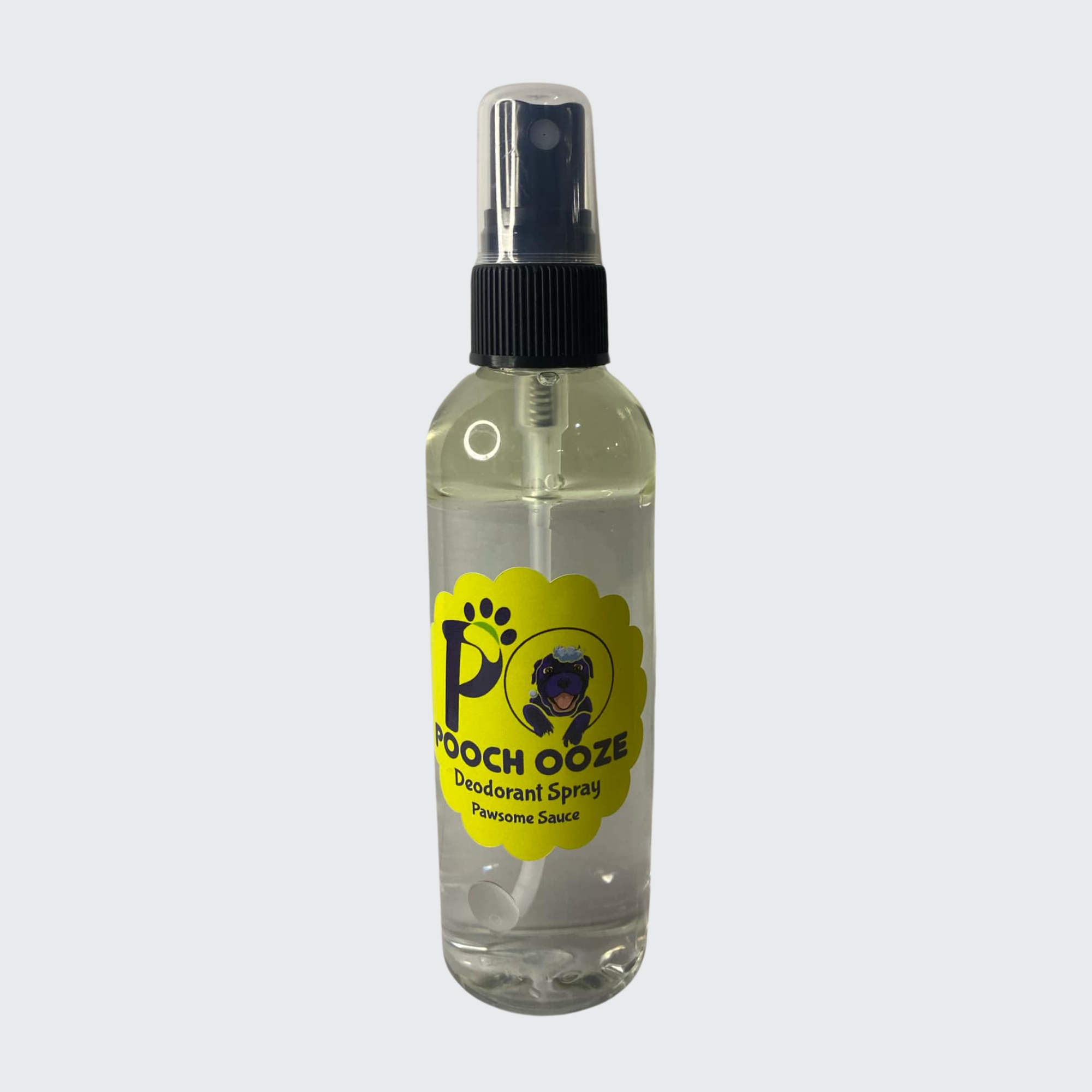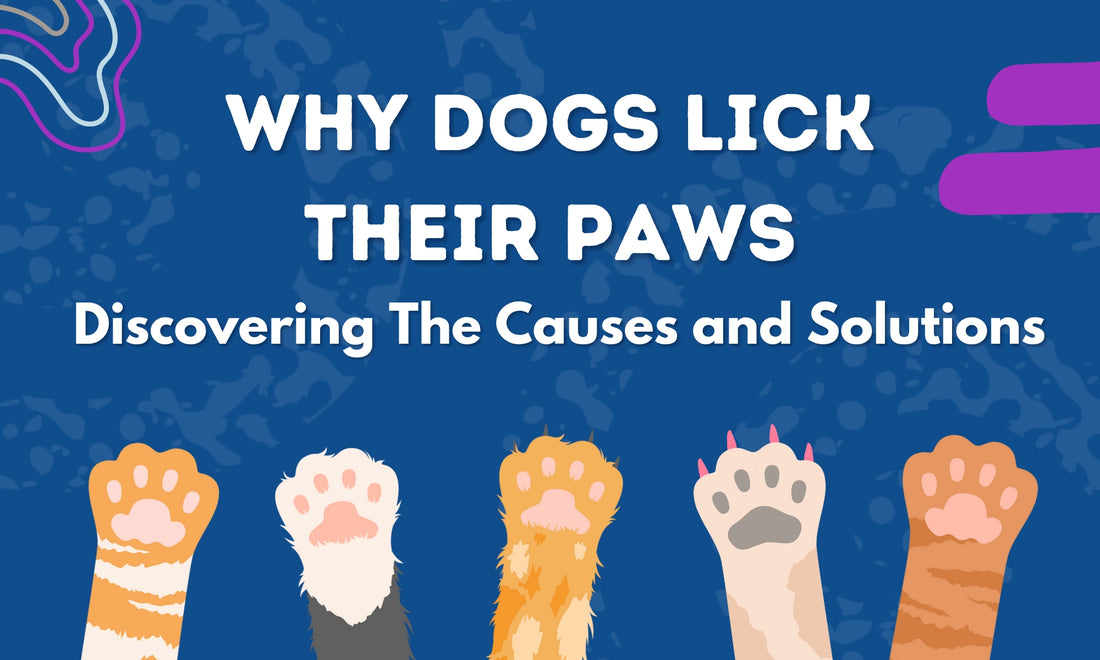Understanding the Fascinating Behavior of Dogs Licking Their Paws
Dogs possess curious personalities and occasionally exhibit mysterious tendencies. One such behavior that perplexes pet owners is when dogs lick their paws. This act may range from a short lick to an extended, intense session and can be observed in all breeds of dogs, regardless of size. What drives this behavior? Is it typical, or might it indicate a deeper issue? Our goal for this article is to explain these inquiries and more, uncovering the rationale behind why dogs lick their paws.
Why Do Dogs Lick Their Paws?
While dogs generally do not have the same level of self-grooming as cats, licking their paws is a fairly routine interaction for them. It's natural for your furry friend to lick his or her paws occasionally, primarily after being outside and collecting moisture or dirt on their paws.
Nevertheless, if you notice excessive licking, nibbling, or chewing at particular areas such as the paw pads, it isn't normal behavior. If this situation persists even after attempts to stop it altogether, it can often indicate underlying problems that require attention sooner than later.
Frequent paw-licking may lead to hot spots, which are red, inflamed skin regions under the fur that attract bacteria and infection when left untreated. This issue is just one example of the various symptoms brought about by repeated licking and gnawing at affected areas.
Various conditions contribute specifically to dogs' excessive compulsive licking habits, such as dry skin allergies, certain foods making an appearance back in dog diets, changing environments, medical issues, injuries, boredom, etcetera. So if you're facing this concern from your furry best friend try analyzing some viable causes shared above while observing with care attentively perceived symptoms guiding appropriate response measures per need type essential action advice required ultimately strengthening bond between pet owner and fluffy companion alike!

Reasons behind Dogs Licking Their Paws:
Cleaning and Grooming:
The act of licking their paws serves as a natural grooming technique for dogs, keeping them clean and tidy. It's interesting how they instinctively know to groom themselves in this way, similar to how cats do with their fur.
Dogs lick their paws not only to remove dirt but also foreign objects that could have stuck to them while playing or walking around outside. This self-cleaning behavior is just another demonstration of the remarkable instincts these animals possess.
Itchy or Irritated Skin:
Aside from cleanliness and grooming, however, dogs may also lick their paws as a result of skin irritations or allergies. Like humans, dogs can be prone to hot spots or insect bites that cause itchiness and discomfort in the affected area. In such cases, licking provides temporary relief, but it can further aggravate the irritation over time if not treated properly.
Another reason for excessive paw licking among dogs is dry or cracked paw pads caused by harsh weather conditions or exposure to rough surfaces while exercising. This condition can be quite painful and requires soothing measures like applying veterinarian-recommended balm to the paws to keep them moisturized and protected against further injury.
Dog owners should note how frequently their pets engage in this behavior since it could indicate an underlying health problem requiring medical attention. Routine checkups with a vet are advised when your furry friend exhibits unusual patterns of self-grooming as well as other signs such as lethargy, changes in appetite, or sleeping habits so that any potential issues are detected early on before they become serious problems down the line.
Anxiety or Stress:
It's essential to recognize that dogs can experience anxiety and stress similar to humans. They might resort to repetitive behaviors like paw licking as a coping mechanism when feeling overwhelmed or anxious, just like how nail-biting is common among humans experiencing stress.
Keeping a close eye on the frequency of paw-licking, along with other behavioral changes and symptoms, can help pet owners detect any underlying issues much earlier. It's essential to prioritize exercise and socialization for your furry friend to ensure their physical and mental wellbeing is balanced. By taking care of our beloved pets' needs holistically—both physically and emotionally—we can share long-lasting companionship with them that nurtures both parties in meaningful ways.
Boredom or Habitual Behavior:
Dogs are known for their high level of intelligence and curiosity. However, it’s essential to acknowledge that they can quickly become bored, particularly when left alone for extended periods or given no mental stimulation. When feeling restless or suffering from boredom-related stress, some dogs may develop the habit of paw licking as a coping mechanism. Over time, this behavior could become compulsive and cause injury to the paws due to excessive licking.
Medical Issues:
However, it's vital to understand that paw licking can also indicate underlying medical issues in certain cases. For example, dogs experiencing joint pain or discomfort caused by conditions like arthritis might become self-soothing through paw licking. Additionally, dogs with dental problems and gastrointestinal issues could end up excessively licking their paws as well. Therefore, it is crucial for dog owners to be observant of their furry friends' behavior and seek professional help when necessary to address any health concerns promptly.
Effects of Excessive Paw Licking:
Furthermore, excessive or compulsive paw licking can have significant adverse effects on a dog's health and wellness. Dogs that frequently lick their paws could experience irritation, soreness, swelling, and even open sores as a result of frequent contact with moisture from saliva. The injured skin is then prone to infections that may require veterinary attention.
In more severe cases, excessive paw licking can cause discomfort, pain, and difficulties in walking or other daily activities due to the exacerbation of existing sores or lesions on the pads. To avoid such complications, it is essential for pet parents to ensure they provide adequate physical activity and mental simulation for their furry friends while supervising them closely at all times.
Tips for Managing Dogs' Paw Licking Behavior:
If you see your dog excessively licking their paws, you must address the underlying reason and take actions to regulate the behavior. Here are some pointers that could be useful:
Regular Grooming:
Maintaining your dog's paws' cleanliness and grooming routine is another effective way of preventing frequent paw licking. Owners should ensure that the hair around the paw pads remains clean at all times, as dirt and debris buildup can trigger a compulsion towards excessive licking behavior. Overgrown nails can also contribute to discomfort and pain when dogs step out for walks.
Regularly trimming their nails to an appropriate length will reduce any irritation while ensuring comfort for our furry friends. Furthermore, choosing a nail-trimming machine with a safety guard mechanism prevents unnecessary injuries from over-clipping or accidents caused by sudden movements during grooming sessions.
A comprehensive paw health plan contributes significantly to overall pet wellness maintenance! By implementing these simple tips, combined with routines emphasizing regular veterinary check-ups and training techniques aimed at curbing anxious behaviors in pets, such as excessive licking habits, one provides sound stewardship principles that consistently contribute positively toward their beloved furry companion’s wellbeing.
Address Underlying Medical Issues:
If you have a feeling that your furry friend's constant paw licking habit is due to an underlying medical problem, it's important to seek advice from your vet for a proper diagnosis and treatment. Allergies, skin infections or irritation, dental issues, as well as arthritis, can lead to the behavior of excessive paw licking in dogs. Your veterinarian might suggest specific medications, dietary changes, or other measures suitable for reducing the symptoms associated with such conditions, along with minimizing the urge to lick their paws constantly.
Provide Mental Stimulation:
Remember, a mental workout is just as essential for dogs as physical exercise. Keeping them engaged and focused can help prevent various behavioral problems that may arise due to boredom, anxiety, or stress. So the next time you notice your dog licking their paws excessively, try providing them with some mentally stimulating activities or toys before assuming it's a medical issue. By doing so, you will not only be relieving their discomfort but also keeping them entertained in the long run!
Reduce Stress and Anxiety:
So, pay close attention to your furry friend's actions and keep them entertained both mentally and physically. And if you notice anything unusual—like excessive paw licking—seek professional advice immediately.
Training and Positive Reinforcement:
Maintaining the health and well-being of our pets requires consistent efforts to ensure all their needs are met. Dogs can show a range of behavioral issues, but addressing them promptly is crucial for their overall happiness.
Training sessions, along with adequate exercise and mental stimulation, will prevent boredom-related habits like paw licking while also keeping your furry friends fit in body and mind. So let's remember to offer unconditional love, regular vet checkups, healthy food choices, and safety measures among other ways to take care of our loyal companions ultimately improving their quality of life!
Diagram:

Conclusion:
To wrap up, although it's normal for pups to lick their paws, when the behavior becomes too frequent or obsessive, there may be an underlying problem that requires care. Identifying the causes behind this conduct, tending to any potential medical problems first and foremost, engaging your furry friend's mind through adequate mental stimulation activities, minimizing stress levels naturally, and employing a type of training method that focuses on rewarding positive actions can go a long way in managing paw licking habits. If you feel uneasy about your pet's excessive paw-licking tendencies at any point during his/her lifetime, seeking proper veterinary guidance is always suggested, as they offer vital information regarding diagnosis and projection of what treatment would work best, uniquely customized for each dog.



